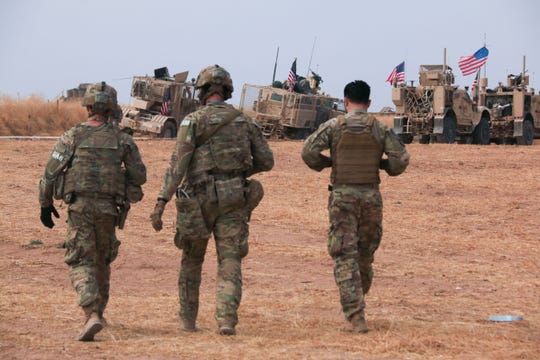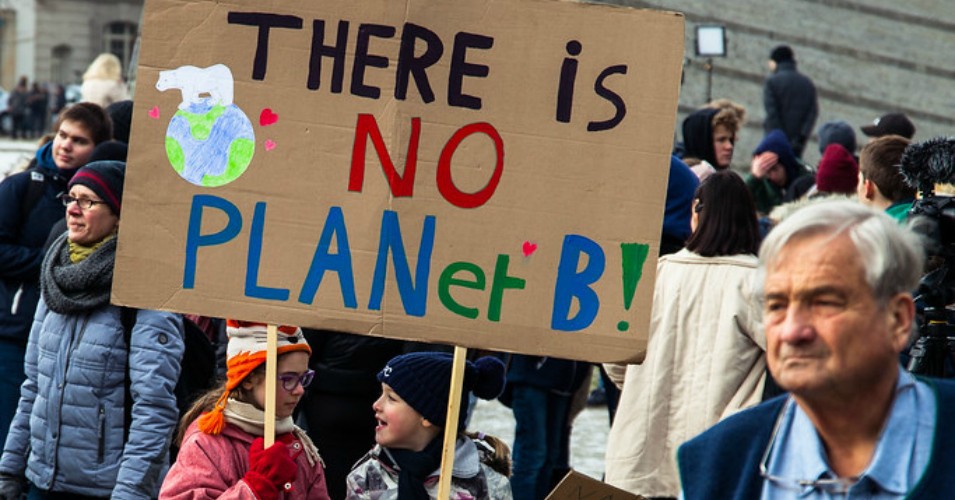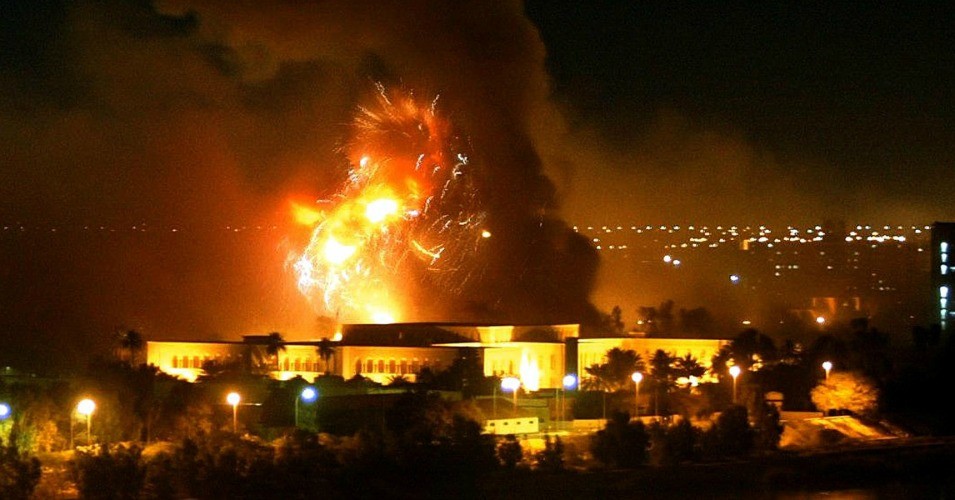
“POWs Never Have A Nice Day.” That sentiment was captured on a button a friend of mine wore for our fourth grade class photo in 1972. That prisoners of war could never have such a day was reinforced by the sad face on that button. Soon after, American POWs would indeed be released by their North Vietnamese captors as the American war in Vietnam ended. They came home the next year to a much-hyped heroes’ welcome orchestrated by the administration of President Richard Nixon, but the government would never actually retire its POW/MIA (missing-in-action) flags. Today, almost half a century later, they continue to fly at federal installations, including the U.S. Capitol as it was breached and briefly besieged last week by a mob incited by this country’s lame-duck president, ostensibly to honor all U.S. veterans who were either POWs or never returned because their bodies were never recovered.
Remembering the sacrifices of our veterans is fitting and proper; it’s why we set aside Memorial Day in May and Veterans Day in November. In thinking about those POWs and the dark legacy of this country’s conflicts since World War II, however, I’ve come to a realization. In the ensuing years, we Americans have all, in some sense, become prisoners of war. We’re all part of a culture that continues to esteem war, embrace militarism, and devote more than half of federal discretionary spending to wars, weaponry, and the militarization of American culture. We live in a country that leads the world in the export of murderous munitions to the grimmest, most violent hotspots on the planet, enabling, for example, a genocidal conflict in Yemen, among other conflicts.
True, in a draft-less country, few enough Americans actually don a military uniform these days. As 2021 begins, most of us have never carried a military identification card that mentions the Geneva Convention on the proper and legal treatment of POWs, as I did when I wore a uniform long ago. So, when I say that all Americans are essentially POWs, I’m obviously using that acronym not in a legal or formal way, but in the colloquial sense of being captured by some phenomenon, held by it, subjected to it in a fashion that tends to restrict, if not eliminate, freedom of thought and action and so compromises this country’s belief in sacred individual liberties. In this colloquial sense, it seems to me that all Americans have in some fashion become prisoners of war, even those few “prisoners” among us who have worked so bravely and tirelessly to resist the phenomenon.
Ask yourself this question: During a deadly pandemic, as the American death toll approaches 400,000 while still accelerating, what unites “our” representatives in Congress? What is the only act that draws wide and fervent bipartisan support, not to speak of a unique override of a Trump presidential veto in these last four years? It certainly isn’t providing health care for all or giving struggling families checks for $2,000 to ensure that food will be on American tables or that millions of us won’t be evicted from our homes in the middle of a pandemic. No, what unites “our” representatives is funding the military-industrial complex to the tune of $740.5 billion in fiscal year 2021 (though the real amount spent on what passes for “national security” each year regularly exceeds a trillion dollars). Still, that figure of $740.5 billion in itself is already higher than the combined military spending of the next 10 countries, including Russia and China as well as U.S. allies like France, Germany, and the United Kingdom.
Not only that, but Congress added language to the latest defense bill that effectively blocked efforts by President Trump before he leaves office on January 20th to mandate the withdrawal of all troops from Afghanistan (and some troops from Germany). Though it’s doubtful he would have accomplished such goals anyway, given his irresolute nature, that Congress worked to block him tells you what you need to know about “our” representatives and their allegiance to the war complex.
That said, an irresolute Trump administration has been most resolute in just one area: selling advanced weaponry overseas. It’s been rushing to export American-made bombs, missiles, and jets to the Middle East before turning over government efforts to shill for America’s merchants of death to President Joe Biden and his crew of deskbound warriors.
Speaking of Biden, that he selected retired General Lloyd Austin III to be his secretary of defense sends the strongest possible signal of his own allegiance to the primacy of militarism and war in American culture. After all, upon retiring, General Austin promptly cashed in by joining the board of directors of United Technologies from which he received $1.4 million in “stock and other compensation” before it merged with giant weapons-maker Raytheon and he ended up on the board of that company. (He holds roughly $500,000 in Raytheon stock, a nice supplement to his six-figure yearly military pension.)
How better than selecting him as SecDef to ensure that the “military” and the “industrial” remain wedded in that famed complex? America’s secretary of defense is, of course, supposed to be a civilian, someone who can exercise strong and independent oversight over America’s ever-growing war complex, not a lifelong military officer and general to boot, as well as an obvious war profiteer.
War Is Peace
As Quincy Institute President Andrew Bacevich so aptly put it, “many Americans have made their peace with endless war.” Within America’s war culture, peace activists like Medea Benjamin and organizations like Veterans for Peace are seen as not just “radical,” but genuinely aberrant. Meanwhile, an unquestioning acceptance of the fact that this country is now eternally at war across significant parts of the planet is considered normal, even respectable. Certainly, not something to put real time or thought into considering.
As a result, warmongers like former Trump National Security Advisor John Bolton are touted in some quarters as hard-headed realists. In seeing the world as a hostile place that Americans need to (but somehow, almost 20 years later, can’t) dominate means their heads are screwed on straight, unlike those screwy thinkers who advocate for peace. But as Dorothy Day, the Catholic peace activist, once said: “Our problems stem from our acceptance of this filthy, rotten system.”
That Americans mostly refuse to see permanent war as filthy and rotten, or to think much about it or the “defense” budget that goes with it showcases the triumph of a broader war culture here. Whereas this country’s profligate and prodigal military complex has given us stunning failure after stunning failure overseas (just consider all those disastrous efforts to win “hearts and minds” from Vietnam to Afghanistan to Iraq and on and on), it has proved stunningly successful in winning — or at least taming — hearts and minds in the homeland. How else to explain the way those trillion-dollar-plus “national security” budgets are routinely rubber-stamped by Congress with hardly a murmur of protest?
In the twenty-first century, Americans are suffering a form of cognitive capture in which war has become the new normal. As an astute reader at my blog, Bracing Views, put it: “Our desire to live without war is held in a stockade, and every day that we wake up and walk out into the yard that understanding is being broken down by the powerful monied elites.”Buye Book
In America’s collective stockade of the mind, activism for peace is an aberration, while acceptance of the war state is second nature. Small wonder that Biden’s proposed cabinet and administration features so many neocon-style policymakers who made their peace with war, whether in Iraq and Afghanistan or Libya and Syria (Antony Blinken as secretary of state; Jake Sullivan as national security advisor; retired general Lloyd Austin as secretary of defense; and Avril Haines as director of national intelligence). Biden’s hawkish picks avidly place their faith in U.S. military power. And they will be advising a new president, who once supported war in Iraq himself and talks not of reducing “defense” spending but of boosting it.
Perhaps you’ve noticed, in fact, how every president from George W. Bush in 2001 on has been proud to pose at some point as a “wartime” president. Perhaps you’ve noticed as well that this country can’t or won’t close Gitmo, the detention facility at Guantanamo Bay, Cuba, flooded with prisoners from the global war on terror beginning late in 2001, men who will likely be imprisoned until death does us part.
Perhaps this is why the U.S. government “tortured some folks,” as President Obama put it in 2014, and abused Iraqi prisoners at Abu Ghraib in Iraq. (Avril Haines, Biden’s proposed national intelligence director, once helped suppress evidence of just such abuse and torture.) Perhaps this is why every president starting with George W. Bush has unapologetically smited evildoers around the world via robotic assassin drones. (Remember, the drone assassination of Iranian Major General Qasem Suleimani at Baghdad International Airport by one Donald J. Trump?) Perhaps this is also why U.S. bombing never seems to stop and those wars never end, even when a president comes into office promising that they will. After all, it’s so empowering to be a “wartime” president!
In his novel 1984, George Orwell put it simply enough when he coined the slogan “war is peace” for his fictional dystopian society. Randolph Bourne put it no less simply when, during World War I, he explained that “war is the health of the state.” Rosa Brooks, who worked at the Pentagon, put it bluntly when she titled her 2016 book How Everything Became War and the Military Became Everything. What we have in America today is warfare as welfare, a form of man-made disaster capitalism, profitable for a few at the expense of the many.
Say it again: We are all POWs now.
The Time I Met a Real POW
In the early 1990s, when I was a young captain in the U.S. Air Force, I served as an escort officer for Brigadier General Robinson Risner. It’s not too much to say that Risner is held in awe in the Air Force. A skilled fighter pilot and Korean War ace, he was a colonel and on the cover of Time magazine in 1965, just as the Vietnam War was ramping up, after which he was shot down and became a POW. He later wrote The Passing of the Night, a harrowing account of the seven years he spent as a prisoner in the “Hanoi Hilton,” the sardonic name American POWs gave North Vietnam’s Hoa Lo Prison.
What sustained Risner through torture and those years of captivity was his Christian faith and patriotism. I vividly recall a talk he gave at the Air Force Academy about his experiences and how that faith of his had sustained him. I’ve never heard a more vivid evocation of the spirit of duty, honor, and country sustained by faith in a higher power. I was proud to have a photo taken with General Risner, as we stood next to the trophy named after him and annually awarded to the top graduate of the Air Force’s Weapons School, the AF’s Top Gun, so to speak.
Risner was gracious and compelling, and I was humbled to meet a POW who’d endured and overcome as much as he had. Yet, back then (to be honest), I never gave a thought to his actions as a fighter pilot leading bombing missions during Operation Rolling Thunder in Vietnam. Since the U.S. government had chosen not to officially declare war against North Vietnam, whether his missions were even legal should have been open to question. Lacking such an official declaration, one could argue that Risner and U.S. POWs like him did not enjoy the legal protections of the Geneva Convention. Using American terminology today, Risner might then have been termed an “enemy combatant” to be held indefinitely, as the U.S. today holds captives at Guantanamo Bay in Cuba, POWs who have little hope of ever being released.
To your average American captured by U.S. war culture, objections here are easy. Of course, Risner’s bombing missions were legal. Of course, he deserved to be recognized as a POW and treated decently. America never goes to war without righteous cause, in this case the containment of Communism by any means short of nuclear weapons. The North Vietnamese saw it differently, however, perhaps because it was they who were being bludgeoned and flattened by U.S. military power.
My point is neither to praise Risner nor to bury him. Rather, it’s to bury war and the culture that breeds and then feeds on it. The more Americans facilitate war (largely by ignoring it and so giving it our tacit approval), the more Washington funds it, the more other people die because of “our” wars and “our” weaponry, the more this country becomes a POW nation writ large.
My Friend’s Button Again
Remember my friend’s button, the one that insisted POWs never have a nice day? As a POW nation writ large, it should apply to all of us. America won’t have a nice day again until it extricates itself from war in all its manifestations. There will be no nice day until Congress stops funding munitions makers and starts seeking peace and helping the sick and poor. There will be no nice day until Americans hate war with all the passion now saved for “patriotic” flag waving. There will be no nice day until presidents bless peacemakers instead of beseeching God to protect the troops.
So, the next time you see a POW/MIA flag outside a federal building, don’t dismiss it as a relic of America’s past. Think about its meaning and relevance in an era of constant global warfare and colossal military spending. Then, if you dare, ask yourself if you, too, are a POW of sorts — not in the strictly legal sense that applies to formal militaries in declared wars, but in the sense of this country being captured by war in all its death, destruction, and despair. And then ask yourself, what does America have to do, collectively, to break out of the POW camp in which it’s imprisoned itself?
Upon that question hinges the future of the American republic.
Copyright 2021 William J. Astore
Follow TomDispatch on Twitter and join us on Facebook. Check out the newest Dispatch Books, John Feffer’s new dystopian novel Frostlands (the second in the Splinterlands series), Beverly Gologorsky’s novel Every Body Has a Story, and Tom Engelhardt’s A Nation Unmade by War, as well as Alfred McCoy’s In the Shadows of the American Century: The Rise and Decline of U.S. Global Power and John Dower’s The Violent American Century: War and Terror Since World War II.
William Astore, a retired lieutenant colonel (USAF) and professor of history, is a TomDispatch regular and a senior fellow at the Eisenhower Media Network (EMN), an organization of critical veteran military and national security professionals. His personal blog is Bracing Views.
Originally published in TomDispatch
IF YOU LIKED THE ARTICLE SUPPORT PEOPLE’S JOURNALISM















































